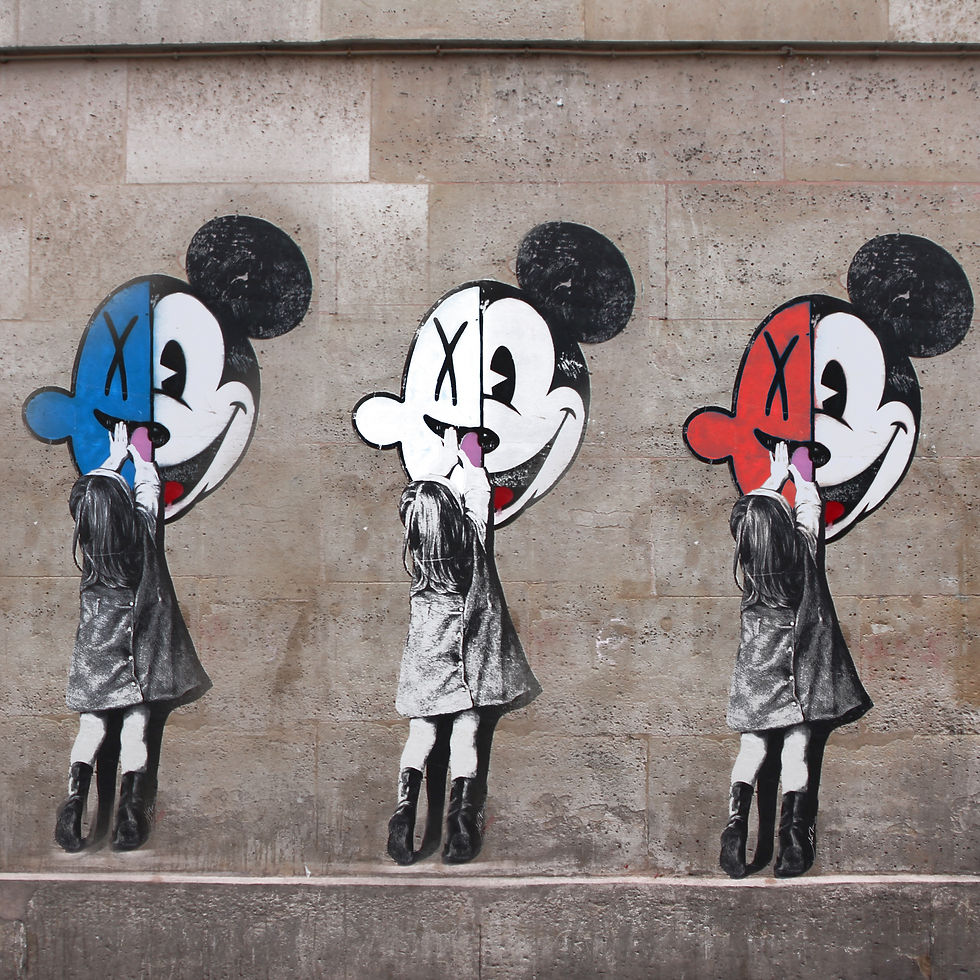She is my wife and I am hers
- Lakshmi Iyer

- Sep 20, 2019
- 4 min read
Updated: Jan 24, 2020

“In households normally, there is a husband and there is a wife. In our household however there are two wives; there is my wife and then I am her wife”. No, this is not one half of a lesbian couple speaking. This is Pankaj Tripathi, the Bollywood actor describing his relationship with his wife. During an interview at Goafest 2019, film critic Anupama Chopra had asked Tripathi if during his struggling days of trying to find acting jobs in Bombay, his wife had asked him to look for a job with a steady income. Tripathi replied in the negative saying that his wife had been very supportive. However, it is the next thing he said that stumped me... “Aam taur pe ek ghar mein ek husband aur ek wife rehte hain. Mere ghar pe do wife rehti hain. Ek meri wife aur main unki wife…” (the English translation of the statement is the opening line of this piece). It got me thinking about the other answers that Tripathi could have responded with. One of them could probably have been “she is my husband and I am hers”. This would be an expected response considering his wife was then earning and supporting the family while he struggled to get a foothold, and she had ticks on some major attributes corresponding to the ‘husband’ stereotype.
I was curious to know why Tripathi chose to respond the way he did. Especially because his statement was not designed to make an impact but was an honest description of his approach to his relationship with his wife, which seemed to be far away from the general construct of Indian masculinity as we understand it.
To understand his statement, it is important to understand the stereotypes associated with husbands and wives - the roles and not the genders. Let’s start with the Wife. She is the homemaker / career-woman, mother, daughter- in-law… She is also supportive, empathetic, loving, understanding, patient, nurturing, sacrificing... Now let’s consider the Husband. He is the protector, provider, decision maker, father, son. He is ambitious, the strong one, dependable…
When we look at genders, the roles are very clearly understood in every culture. According to Geert Hofstede, the Dutch social psychologist who pioneered the Cultural Dimensions Theory which describes national cultures, the degree of differentiation between gender roles determines whether a culture is masculine or feminine. A society is called feminine when there is no strong differentiation between the genders for social and emotional roles; they overlap. Whereas in masculine cultures, the roles of genders are clearly defined. On another dimension, in very general terms, masculine cultures are about ego, feminine cultures are about relationships. In masculine cultures, both men and women are assertive, competitive, and focused on material success, although women are less so than men. And in feminine cultures, both women and men are modest, tender, and concerned with the quality of life.
India we will agree, has predominantly been a masculine culture.
Let’s come back to Tripathi. Considering his wife’s financial contribution to the family, not once during the exchange did he say that his wife had been ‘the man of the house’. Rather he said that the family had two women in lead roles. It clearly shows that at least in his case, to sustain and enrich their relationship, he considers qualities that are usually associated with women as more important. Tripathi comes from the small district of Gopalganj in Bihar, the state being known for its patriarchal setup. His sensitive articulation therefore, especially considering where he hails from was touching.
Taking Tripathi’s view further, wouldn’t viewing the construct of masculinity through the lens of interchangeable / similar gender roles not change the social context for genders? We may probably not have felt the need for a #MeToo movement; the incidents of crimes against women would have been far fewer; women would find it easier to pursue careers without walking the tightrope and feeling the guilt; men would find it easier to be stay-at-home husbands; the approach to parenting would change… Imagine the impact this would make in rural India if more men in Tripathi’s own Gopalganj and in similar towns and villages would think like he does.
The attributes associated with a masculine culture - ambition, success, etc. - are important to leading a fulfilling life. Women have already started walking down this road and are equal to their male counterparts in this area. But it is also important to recognise that attributes that are predominant in feminine cultures - focus on relationships, empathy, sensitivity - contribute to a thriving, healthy society when displayed not just by women but by men too. That said, this is not about being of a feminine nature over a masculine one. It is rather about recognising that the man can take on the woman’s role when needed and vice versa, without him feeling emasculated in the former and she feeling like ‘the man of the house’ in the latter.
When men and women start stepping into each others’ roles with ease, we will see our social and cultural fabric changing. Till such a time arrives, we have men like Pankaj Tripathi to look up to.

Comments